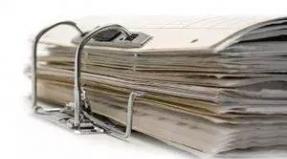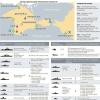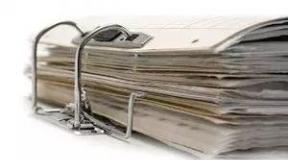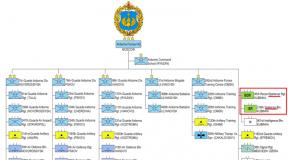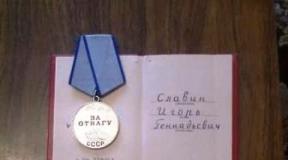What services can you get a tax deduction for? What is a tax deduction? Who can get a tax deduction?
Property tax deduction means the ability of an individual to return personal income tax in the amount of 13% of the cost of housing, but not exceeding the limit of 2,000,000 rubles.
The rules for granting benefits are specified in Art. 220 of the Tax Code of the Russian Federation (clauses 3-4, part 1). You can receive a personal income tax refund in the following cases:
- Purchasing housing or land.
- Purchasing a share in real estate (we’ll talk about receiving a tax deduction for shared ownership and having a share under the DDU).
- Construction of a house and its finishing.
- Purchasing real estate with a mortgage.
Conditions of receipt
Who is entitled to a tax deduction when buying an apartment:
- Russian citizens paying personal income tax (not carrying out entrepreneurial activities);
- who, in addition to pensions, have legal monthly incomes of at least the minimum wage.
Reference. Non-working pensioners can provide the Federal Tax Service with a declaration for the last three years, on the basis of which a refund will be made.
Read about whether a pensioner has the right to a tax deduction if he works or does not work, and you will learn how to apply for it.
- foreign citizens with Russian resident status and confirmed income;
- if the property is registered in the name of a minor child, his parents or legal guardians can receive a deduction if they fall under the above categories (it is written about how to do this).
Now you know who is entitled to a tax deduction.
Who is not eligible to receive this deduction?
Some more features:
- The benefit does not apply to real estate purchased with the help of maternity capital, military mortgages, the “young family” program and other government subsidies.
- If the parties to the purchase and sale agreement are the employer and the employee, no deduction is provided.
- Prohibited (spouses, parents and children, etc.)
Deduction amounts
A deduction of 13% is due on the following costs:
- expenses for purchasing a home;
- construction and finishing materials;
- construction and repair services;
- payment of estimate documentation;
- connection to public utilities;
- expenses for repayment of interest paid to the bank (in case of purchase with a mortgage.)
The maximum amount per taxpayer is 260 thousand rubles. (no more than 2,000,000 rubles are reimbursed from the value of the property).
Reference. If the property is worth more than the maximum amount and was purchased during marriage, the second spouse also has the right to deduct the property, and it does not matter in whose name the property is registered.
Read about how to get a deduction for your spouse.
Thus, for a family the maximum amount to be returned will be 560,000 rubles. If real estate is purchased with a mortgage, in addition to a deduction for the cost of housing, a deduction for bank interest is provided.
 The maximum amount for them is 390 thousand. It is not difficult to independently calculate the amount to be returned.
The maximum amount for them is 390 thousand. It is not difficult to independently calculate the amount to be returned.
For example, in 2016 a citizen bought a house worth 2,000,000 rubles. His monthly earnings for 2016 were 50,000 rubles, on which personal income tax was paid in the amount of 78,000 rubles.
The amount will be calculated as follows: 2,000,000 rubles. * 13% = 260,000 rub. For 2016, the Federal Tax Service will return 78,000 at a time. The remaining 182,000 will be reimbursed by the tax authorities in subsequent years.
How many times can you get it?
Property deduction has strict limits by law. Until 2014, you could use this right once in your entire life. From 01.01. In 2014, the property deduction is tied to the amount that the taxpayer spent on real estate.
If the refund from the purchase of housing is received from an amount less than the upper limit of the value of the property (RUB 2,000,000), you can receive it in addition if you purchase other real estate (paragraph 2, paragraph 1, clause 3, article 220 of the Tax Code of the Russian Federation).
If a citizen bought a home before 2014, then the old rules still apply.
When are documents submitted?
Property deductions have no statute of limitations. A citizen can exercise his right at any time after purchasing real estate.
To receive money in cash, you can contact the Federal Tax Service the following year after registering ownership of your home.
This is due to the fact that the 3-NDFL declaration, which is submitted to return funds, is drawn up only after the end of the calendar year. There are no restrictions on maximum periods; documents can be submitted after several years.
The Federal Tax Service returns personal income tax at a time for no more than the last three years. That is, if an object was purchased, for example, in 2012, and the application was submitted in 2017, you can receive a one-time deduction only for 2014, 2015 and 2016, for the remaining part you need will submit papers in subsequent years.
How to get a?
There are two options for receiving a deduction:
- in cash by personally contacting the Federal Tax Service;
- non-cash form of deduction through contacting the employer.
Personal appeal
 If a citizen is interested in a one-time payment of funds, a package of documents should be submitted 12 months after taking ownership.
If a citizen is interested in a one-time payment of funds, a package of documents should be submitted 12 months after taking ownership.
You need to write an application to the Federal Tax Service for the provision of a personal income tax refund, to which you must attach:
- passport.
- Documents that confirm the purchase of housing (purchase and sale agreement, mortgage agreement with the bank, etc.).
- Declaration in form 3-NDFL.
- You can order it from your employer, from a taxpayer assistance service, or fill it out yourself.
- Certificate of income (issued by the employer).
- Account number to which funds will need to be sent.
After reviewing the documents, the Federal Tax Service will send an official notification of the decision to the applicant’s address. If the deduction is approved, the funds will be transferred to the citizen’s account within a month (Article 78 of the Tax Code of the Russian Federation).
Through the employer
To receive a deduction through your employer, you do not need to wait twelve months, as in the first case.
When using this method, personal income tax will not be withheld from the citizen until the entire deduction amount has been exhausted.
You will need to submit an application to the Federal Tax Service to provide notice to the employer. The application must be accompanied by only a passport and papers confirming the purchase of the apartment.
 After considering the application, the Federal Tax Service will send the applicant a notice, which will need to be taken to the accounting department at the place of work.
After considering the application, the Federal Tax Service will send the applicant a notice, which will need to be taken to the accounting department at the place of work.
Based on this document, personal income tax will not be withheld from the employee. The maximum period for consideration of applications in both cases is three months from the date of application (Article 88 of the Tax Code).
Whatever method the taxpayer decides to use, documents for deduction must be submitted every year until full payment of the entire amount is made by the tax authorities.
Thus, the property deduction is a kind of state support measure for conscientious taxpayers in the form of a refund or reduction of the personal income tax tax base. All working citizens who pay personal income tax and have purchased housing legally can take advantage of this right.
Useful video
How to return the 13 percent tax?
Working citizens in the field of hired labor, as well as entrepreneurs with income tax payer status, have the right to take advantage of it in certain situations.
Knowing this list is useful for everyone, because sometimes people regularly pay 13% of all their income to the state, although they could pay less if there are legal grounds for “discounts”.
The legislative framework
A complete list of deductions and the conditions under which they are provided to a person is reflected in the Tax Code of the Russian Federation.
 Due to changes in the economy, in particular inflation, and incentives for citizens to study and buy housing, amendments are periodically made to it. The main condition for providing benefits remains the same: the person must have an official income. If he receives a “black salary” or as an entrepreneur pays UTII or the simplified tax system, then there is no right to deduct 13%.
Due to changes in the economy, in particular inflation, and incentives for citizens to study and buy housing, amendments are periodically made to it. The main condition for providing benefits remains the same: the person must have an official income. If he receives a “black salary” or as an entrepreneur pays UTII or the simplified tax system, then there is no right to deduct 13%.
The main types of tax refund used by employed people: standard, property, social, professional. The benefit associated with securities transactions is much less commonly used, but it is also officially enshrined in law.
Standard
Personal income tax “discounts” apply to yourself in the following sizes:

A complete list of categories of persons who are entitled to these privileges is in Article 218 of the Tax Code of the Russian Federation. Previously, there was a deduction of 400 rubles. to any employee, regardless of his status, but now it has been cancelled. If a person is entitled to both of the above deductions, then he is provided with only one of them (the largest).
If a working citizen has children, he is entitled to the following monthly:
- 1400 rub. – for the first and second child;
- 3000 – for the third, fourth and subsequent children;
- 12,000 - until he turns 18 years old, and if he is a full-time student and has a disability of group 1 or 2, then until he is 24 years old (for or guardians of children, the deduction amount is 6,000 rubles).
The above privileges are granted double the amount when the parent or guardian is the only one. The increased amount of the benefit can be formalized if the second parent refuses to take advantage of the privilege. The “children’s” deduction is given regardless of the presence or absence of a standard tax refund for oneself.
Property
According to the return mechanism, they can be divided into 2 large groups: when a person buys or sells certain property.
When selling
When a citizen sells property, he receives income, from which, by analogy with wages, 13% of personal income tax must be calculated. But the legislator has provided for non-taxable amounts, that is, tax deductions for situations where the owner owns the property for less than 3 years.
From the fact what exactly is a person selling? The benefits depend on:

Instead of the above deductions in the amount of fixed amounts, a person has the right to document his expenses and fully or partially reduce the tax base. For example, a person bought a car at a car dealership for 1.43 million rubles, and after 2.5 years he sold it for 1.15 million rubles. Payment documents for the purchase of a car will be the basis for personal income tax not to be charged on this transaction at all, although the sale amount far exceeds the threshold established by law.
At the time of buying
The benefit applies only to the house under construction (including shares), as well as the land under it. The state allows an officially employed person to return 13% of the purchase price of such property. Limit– 2 million rubles, and if housing is purchased, then an additional deduction of 3 million is provided. The loan must be issued only as a mortgage loan. You won’t be able to return 13% with a regular loan.
Moreover, the number of residential properties purchased after 2014, which are subject to a property exemption upon purchase, is not limited, but the “ceiling” for them is 2 million rubles. (that is, in total for all residential real estate). Previously, it was possible to receive such a benefit from the state only from one object. If a person has already used this deduction before 2014, then it is not allowed to reuse such a benefit from the state. 
Social
The legislator provides for several categories of social expenses, for which a working person has the right to return 13%.
Treatment
Medical expenses incurred are deductible in three cases:
- yourself and close relatives. The benefit is provided for paid medical services of doctors in all public and private clinics. A complete list of such services is contained in Decree of the Government of the Russian Federation No. 201 of March 19, 2001. Certain types of treatment are considered expensive and have no restrictions on the amount.
- When purchasing medications from the approved list (in the above Resolution). In this case, you must take a prescription from the doctor in Form 107-U and save payment documents, since they will then need to be presented in order to exercise the right to a tax refund.
- When paying for voluntary health insurance.
Education
The tax deduction applies to monetary expenses for your own education, as well as the education of children and wards in educational institutions.
Citizens use this benefit most often with the following types and forms of the educational process:

“Ceiling” on deductions for treatment and education in total equal to 120 thousand rubles. Refunds for children's studies are limited 50,000 rub. for each child.
Pension and insurance contributions
- payments under non-state pension agreements signed with a non-state pension fund (NPF);
- additional payments for (in particular, the co-financing program);
- insurance premiums under voluntary pension insurance contracts concluded with an insurance company;
- insurance premiums under voluntary contracts.
Execution of documents is allowed both with the taxpayer himself and with some close relatives.
Charity
Part of the money that a person has paid for charitable purposes can be returned.
But the organization where the money is deposited must be one of the following:
- Charitable organizations (most often foundations, associations).
- Socially oriented companies that do not pursue the goal of making a profit (non-profit). Payments must be specifically for their main activities.
- Religious organizations. In this case, contributions should only be for the implementation of the activities that are prescribed in their charter.
- Non-profit organizations working in the field of education, sports (except professional), social assistance, animal protection, education, nature conservation and other areas. In addition to voluntary donations, contributions can also be used to accumulate or increase the target capital of such organizations.
Personal income tax can also be returned from payments to charity in kindergartens (since this is an educational institution). The main condition is to properly document such contributions.
This type of social deduction limited to a quarter of the taxpayer's annual income. For example, if a person’s earnings for the year amounted to 580 thousand rubles, and he donated 170 thousand rubles to charitable purposes, then he will be able to return 13% only with 145,000 (580/4).
Professional
Applies only limited circle of persons:

This benefit is provided in two versions: in the amount of documented expenses or in the amount of 20% of total income. This does not apply to royalties for certain types of intellectual work and a number of inventions (20–40% deduction).
Transactions with securities
This benefit is granted if a person carries out transactions with securities and at the end of the year there was a loss.
His taken into account in two ways:
- if other transactions have a positive result, then the loss is taken into account in the current year when calculating personal income tax;
- if there is no income from other transactions, then the loss is carried forward to future years (you can return it within 10 years).
The legislator stipulates that losses can be taken into account only for transactions with securities that are traded on an organized market. Moreover, in the future the deduction is valid only for exactly the same transactions.
For example, in 2014, a citizen received a negative result of 180 thousand rubles when working with securities, and in 2015 - a profit of 135,000. An income tax of 13% was paid on the income, that is, 135 * 0.13 = 17, 55 thousand rubles. For tax refund (balancing losses) is submitted for 2015. and the entire amount of the previously received loss is indicated. Since the profit for this year is less than the previous loss, exactly 125,000 rubles will be counted. and the citizen will receive a refund of only 16.25 thousand rubles. The balance of 55,000 (180 - 125) is carried forward to future years.
For information on the rules for receiving a tax refund in various situations, see the following video:
In the Russian Federation, legislation provides for the provision of a wide range of benefits to various categories of citizens. These may include benefits for people of retirement age, disabled people, low-income individuals and families. In addition, tax legislation also provides for a number of opportunities to receive social benefits. This may include not as such a benefit in the form of material or in-kind assistance, but in the form of a return of part of the amount spent, for example, on the purchase of housing, for treatment, as well as a return of part of the amount spent on education. This social benefit is called a tax deduction. What types of tax deductions exist in Russia, who has the right to a tax deduction? How is it calculated? Where and when to contact? These and other issues will be discussed in this section.
What is a tax deduction?
So, only a citizen of the Russian Federation who receives income taxed at a tax rate of 13% can receive a tax deduction. In other words, a deduction is provided when paying personal income tax (NDFL). At the same time, you can use the right of a tax deduction both at the time of personal income tax calculation (for example, with a tax deduction for children, at the request of an employee, the employer automatically calculates the tax taking into account the tax deduction), and after the tax is paid. To do this, the taxpayer must submit a tax return in Form 3-NDFL to the tax office and write a return application.
A tax deduction is an amount that reduces the amount of income on which personal income tax must be paid. A tax deduction also means a refund of part of previously paid income tax for an individual.
Types of tax deductions
Tax deductions are:
standard- provided are divided into two types. The first is provided to certain categories of citizens (disabled people, Chernobyl victims, military personnel), the second - to citizens raising children.
We will not consider the complete list of persons who have the right to it; we will list only some categories of citizens:
Disabled people due to the liquidation of the accident at the Chernobyl nuclear power plant;
Disabled people due to the liquidation of an accident at the Mayak production site;
Disabled people of WWII and other combat operations;
Military personnel who participated in the liquidation of the Chernobyl accident;
The second type of standard tax deduction is This is a tax deduction for a child (or children, if there are several). The deduction is provided in the form of a reduction in the amount of wages, which is subject to personal income tax. However, the size of the standard tax deduction for children depends on their number.
social- these include:
- tuition deductions. At the same time, tax legislation provides for the right to receive a tax deduction not only for the education of oneself and one’s children, but also for the education of one’s siblings. In addition, a tax deduction is provided both when studying at universities, technical schools, colleges, and when studying in kindergarten, music and art schools, foreign language courses, driving schools, and sports clubs. For more information about the conditions for providing and receiving tax deductions for education -.
- for charity,
- for voluntary pension insurance,
- for the funded part of the labor pension.
property- deductions related to the costs of purchasing an apartment, house, or construction site.
According to the Tax Code of the Russian Federation, a tax deduction for the purchase of property (house, apartment, room or building plot) is provided in three cases:
When constructing or purchasing a finished property, including land for future construction in the Russian Federation;
When paying a loan and/or interest on it for the purpose of construction, purchase of housing, as well as shares of housing;
When repaying interest on loan funds received from Russian banks for the purchase of real estate.
For more information about the rules and grounds for obtaining property tax deductions, see the corresponding article.
professional- deductions related to expenses incurred by individual entrepreneurs, notaries, royalties for the results of scientific activities.
related with losses incurred in the securities market.
Our articles
According to the Tax Code of the Russian Federation, all working citizens pay personal income tax in the amount of 13%. But there are a number of cases in which it is possible to refund the tax paid. In tax practice, this is called a tax deduction.
A tax deduction is an amount on which 13% tax (personal income tax) will not be paid.
- Official salary;
- Private teaching, consultations;
- Renting out property or vehicle;
- Sale of property that belonged to the specified owner for less than 3 years (before 2016) or 5 years (after 2016).
It is important to remember that if a citizen has other earnings with a special tax base, the deduction is provided only for income taxed at a rate of 13%.
Practical implementation of tax deduction:
- Reducing the tax base.
Personal income tax of 13% is deducted not from the full amount of the salary, but from the amount reduced by the deduction.
Example: a citizen’s salary is 25,000 rubles. The monthly deduction is 1,000 rubles. Personal income tax will be deducted from 24,000 rubles.
- Return within a year.
During the year, a working citizen pays a tax of 13%. At the end of the reporting period, he submits documents to the tax office confirming income, the right to deduct and paid taxes. In this case, the overpaid amount is returned at once.
- Monthly refund.
In some cases, a monthly refund of the amount paid is carried out, without waiting for the end of the tax period (for example, the birth of a child, disability). You must submit documents to the tax office and obtain confirmation of your right to a tax deduction. After this, personal income tax withholding will stop for a certain time.
Kinds tax deductions
- Standard;
- Social;
- Property;
- Professional;
- Associated with losses on transactions with securities;
- Deduction for charity (expenses related to voluntary donations).
It is important to remember: the opportunity to receive each type of deduction is one-time.
Standard tax deduction
The difference between the deduction: a fixed amount, regardless of the citizen’s income.
Provision of deduction: monthly.
Conditions for providing a standard tax deduction:
- Children in care.
For the first and second children, parents or guardians are provided with a deduction in the amount of 1,400 rubles, for the third and other children - 3,000 rubles. Deductions are provided until the child turns 18 years old, and if the youngest is a full-time student at a university, up to 24 years old.
For a disabled child, a benefit is established in the amount of 12,000 rubles for parents and 6,000 rubles for adoptive parents/guardians.
The provision of the benefit will end when the total income from the beginning of the year is equal to 280,000 rubles (after 2016 - 350,000 rubles). Payments will continue in the new reporting period.
- Preferential category of citizens.
Heroes of Russia and the USSR, participants of the Second World War, former prisoners of concentration camps, disabled people since childhood, “Afghans” - have the right to a deduction of 500 rubles.
Social tax deduction
A number of cases for providing a tax deduction:
- Expenses for education: your own or children’s;
- Treatment expenses: your own or close relatives;
- Charity;
- Contributions towards future pensions.
The maximum amount of social deduction for treatment and education is 120,000 rubles. Expensive treatment is an exceptional case - a deduction is provided for the full amount.
To receive a deduction for education, it is important to meet the following conditions:
- The educational institution for which educational services have been paid must have a license (this includes not only colleges and universities, but also driving schools, advanced training courses, etc.);
- A citizen who has paid for educational services must be officially employed.
When receiving a deduction for children's education, there are certain nuances:
- The child's age is no more than 24 years;
- Full-time form of education;
- The contract for payment of tuition fees was drawn up in the name of one of the parents.
When receiving a deduction for your own education, the form of education does not matter. The amount of the deduction will not exceed 15,600 rubles. The refund amount will not exceed the amount transferred by the taxpayer to the budget as personal income tax.
To receive a deduction for treatment, the following conditions must be met:
- Treatment of close relatives was paid for: wife/husband, mother/father, minor children;
- Medical services must be on the list of services to which a deduction can be applied. The list is determined by the state;
- The medical institution must have a license.
You can get your money back for paying for medications prescribed by a doctor (the medications must also be on the list of medications for which a tax deduction can be applied), as well as for paying for VHI (insurance payments have been paid under a VHI agreement, the agreement only provides for payment for treatment, the insurance company has license).
The amount of the deduction will not exceed 15,600 rubles. The refund amount will not exceed the amount transferred to the budget as personal income tax.
It is important to remember that the validity period of social deductions is limited. Income tax refunds are submitted in the year following the year in which the expenses were incurred. That is, if payment for training was made in 2015, then the 3-NDFL declaration is submitted precisely for this reporting period, but in 2016.
Tax refunds are only possible for the previous 3 years. Those. in 2017, declarations are accepted for 2016, 2015, 2014. If expenses for training or treatment were incurred earlier, for example, in 2013, then no refund will be made. Therefore, it is important to collect documents on time and submit them to the tax office.
Property tax deduction
Since 2001, it has become possible to receive a tax deduction from the acquisition of real estate, in particular from:
- Purchasing a finished apartment (house, room) or a plot for construction;
- Purchasing property with a mortgage;
- Housing construction;
- Costs for finishing or repairs.
It is important to remember that if housing was purchased from interdependent persons (for example, close relatives or an employer), a tax deduction is not available.
The maximum possible amount from which a refund will be made is RUR 2,000,000. If housing was purchased before 2008, the maximum possible amount to receive is 130,000 rubles.
Example 1: The cost of the purchased apartment is 5,000,000 rubles. According to the law, a citizen can return 13% only from 2,000,000 rubles, i.e. 260,000 rub.
Example 2: the cost of the purchased room is 400,000 rubles. According to the law, the citizen will return 13% of the total purchase price, i.e. 52,000 rub.
It is important to remember that in the second example, the citizen still has the right to return the deduction from the unused 1.6 million rubles. But this right only applies if the first property was acquired after January 1, 2014.
The maximum amount that a citizen can return in a year does not exceed the amount of income tax paid by the owner for this period.
Example 3: A citizen has an official salary of 14,000 rubles. For the year, personal income tax will be 14,000 × 13% × 12 months = 21,840 rubles. This is exactly how much the return for purchasing real estate in the current period will be. The remainder of the deduction, if any, does not burn out, but is transferred to the next reporting period and paid until the end.
When returning 13% of the paid mortgage loan, the deduction is calculated without restrictions if the purchase dates back to January 1, 2014. If the housing was purchased after this date, the maximum deduction amount will be RUR 390,000.
Professional tax deduction
- Individual entrepreneurs (individual entrepreneurs), with a tax rate of 13%;
- Lawyers and teachers, private practitioners;
- Authors receiving remuneration for their works;
- Persons providing services under a contract.
The reporting period for providing a professional tax deduction is a year.
A citizen with the status of an individual entrepreneur receives a tax deduction calculated based on the costs of running a business - purchase of materials, wages to employees, etc. With documentary evidence of all expenses, a citizen has the right to count on deduction of the full amount of expenses. But if all the checks and documents confirming the conduct of business are not available, then a citizen can exercise the right to a deduction of only 20%.
When returning personal income tax for a work of art, there is a fixed rate if the author cannot confirm the costs of creating the masterpiece. This norm is from 20 to 40%.
Example: A citizen wrote a book and received 40,000 rubles as an author. He is entitled to a deduction of 20% of this amount.
Charity deduction possible to obtain if an officially working citizen provides assistance:
- A company engaged in charitable activities;
- Religious organizations;
- Non-profit social companies;
- Non-profit companies related to science, culture and education. This also includes organizations for the protection and protection of the environment, human rights and freedoms;
- Non-profit companies. In this case, a tax deduction is provided only if the donations were aimed at the development or formation of endowment capital.
The refund amount will not exceed the amount transferred to the budget as personal income tax. It is possible to return no more than 13% of donations. The maximum deduction amount will not exceed a quarter of the citizen’s annual income. If a citizen provided assistance to several organizations during the year, the restriction applies to the total amount of donations for this period (year).
Tax deductions allow working categories of citizens to return part of the funds spent. (And in some cases - completely). This approach to the tax system encourages citizens to engage in certain types of activities (training, advanced training) and is a means of support (deduction for construction, purchase of housing or mortgage lending - a fairly large amount).
You should not miss the opportunity to return some of the resources spent, whenever possible.
A significant part of our readers (like me, by the way) pay taxes. However, this amount can be reduced. There is a tax deduction for this. What is this? When applying for such a deduction, the state reduces the amount on which taxes are paid. It is also called the return of a certain part of previously paid personal income tax (personal income tax) when purchasing real estate, medical expenses or education.
Who can receive a tax deduction
Only a Russian citizen who is a tax resident (a person who pays that same 13% of income). Individual entrepreneurs operating in a special tax regime and not having income taxed at a rate of 13% cannot receive a deduction.
What is a tax deduction?
According to the Tax Code, there are several types of deductions:
- Standard.
- Social.
- Property.
- Professional.
- A deduction associated with the transfer to a future period of losses from transactions related to securities and transactions with financial instruments of futures transactions that are traded on the organized market.
- Deductions related to the carry forward of all losses related to participation in an investment partnership.
The most important deduction is property. Let's start with him.
A property deduction can be obtained when purchasing any real estate. How does it work? You buy, say, an apartment, and then the state returns 13% of the amount spent to you, since you paid it income tax. For example, if 200,000 rubles in income tax were paid in a year, then the tax deduction for the purchase of an apartment that you can receive in a year will be no more than 200,000 rubles. If the tax deduction exceeds this amount, the remaining money can be received as early as next year.
The maximum amount of property deduction is 2 million rubles per person for the real estate itself (that is, you can return 13% of this amount) and 3 million rubles for using a mortgage loan. So you can get your money back from several real estate properties (applies only to purchases made since 2014). Tax deduction on interest is provided only for one apartment. This deduction also applies when paying for repairs.
You can get your money back for other purchases as well. But in this case, the total amount of deductions cannot exceed 120 thousand rubles. Moreover, this is not a refundable amount, but an amount from which 13% is debited. (This limit does not include payment for training and expensive treatment.) All these payments can be returned after the tax period, only expenses for the expired tax period are taken into account.
1. Standard deduction (Article 218 of the Tax Code, maximum refundable amounts are indicated):
- 500 rubles per month for citizens who have various state awards and/or special status, for example Hero of the Russian Federation, Hero of the Soviet Union, and so on.
- 1,400 rubles per month for each child, if the parents’ income is up to 280,000 rubles.
- 3,000 rubles per month - for the third and subsequent children.
- 3,000 rubles per month is a tax deduction for a disabled minor child or for a disabled child of the first or second group until he reaches the age of 24 years, if he is a full-time student, graduate student, resident, intern, student, and so on.
- 3,000 rubles per month is a tax deduction for citizens who suffered radiation sickness or other diseases as a result of the disaster at the Chernobyl nuclear power plant, for disabled people of the Second World War and other categories of beneficiaries.
2. Persons whose expenses are related to the following areas apply for a social tax deduction:
- Charity- in the amount directed by an individual to charitable purposes in the form of monetary assistance during the year. Cannot exceed 25% of the amount of income received in the reporting year.
- Education- in the amount that was paid in the tax period for education (your own, children under 24 years of age, wards or wards under 18 years of age and former wards under the age of 24 years). At the same time, the amount of tax deduction for expenses on education of children is 50,000 rubles per year; for your education - no more than 120,000 rubles per year in combination with other social expenses of the taxpayer, in particular with payment for treatment, pension insurance contributions, and so on, with the exception of payment for expensive treatment.
- Treatment and/or purchase of medications- in the amount that was paid in the tax period for medical services provided by medical organizations or individual entrepreneurs engaged in medical activities to the taxpayer himself, his parents, children, spouse. The taxpayer can receive a tax deduction in the amount of all expenses for expensive drugs and treatment.
- Cumulative part of labor pension- in the amount that was paid by the taxpayer in the tax period in the form of additional insurance contributions for the funded part of the labor pension. If additional contributions were paid by the employer, no deduction is provided.
- Non-state pension provision- in the amount of pension contributions paid by the taxpayer during the tax period under an agreement with the pension authority. Unlike the previous case, a deduction can be provided if the employer paid, but subject to contacting him. The maximum amount of contributions from which the deduction will be calculated is 120,000 rubles.
Required documents
1. To apply for a tax deduction for education it is necessary to fill out the 3-NDFL declaration and submit it to the tax office at the place of registration. The following documents are attached to the declaration:
- certificate 2-NDFL;
- tax refund application containing account details for transferring funds;
- agreement with an educational institution;
- license of an educational institution to provide educational services;
- all payment documents according to which payment for training was made.
2. In order to apply for a tax deduction for treatment, along with the 3-NDFL declaration submitted to the tax office, you must provide the following documents:
- tax refund application;
- certificate from work in form 2-NDFL.
In addition, to return funds spent on treatment, you will need to attach:
- certificate of payment for medical services;
- documents that confirm the amount of expenses you incurred;
- agreement with a medical organization;
- license of a medical organization for the right to carry out medical activities.
When refunding drug costs, you will need:
- a recipe issued in a special order;
- payment document.
You can also apply for a tax deduction to pay for voluntary health insurance; for this you also need to provide:
- policy or agreement with an insurance company;
- insurance company license;
- payment documents.
3. To apply for a deduction when buying a home The following must be attached to the declaration in form 3-NDFL:
- certificate 2-NDFL;
- tax refund application;
- residential purchase and sale agreement;
- agreement for participation in shared construction of a residential building;
- act of acceptance and transfer;
- certificate of ownership;
- payment documents.
For mortgage purchases, the following must be added to the previous documents:
- loan agreement;
- certificate of interest paid.
After all the documents are attached to the declaration in Form 3-NDFL, the Federal Tax Service reviews all the papers and makes a decision on granting or refusing a tax deduction.
Deadlines for registration
According to Article 229 of the Tax Code of the Russian Federation, a tax return in form 3-NDFL is submitted until April 30 of the year following the reporting year (for expenses in which a refund is expected to be made). This does not apply to receiving social, property and standard tax deductions, but with a limitation: you can submit documents for a refund for no more than three tax periods.
Receipt times
The tax office has three months to verify the declaration, after which the refund is made within a month.
You can do otherwise and provide the employer with an application and notification from the tax office about the right to receive a tax deduction. After receiving these documents, the employer will withhold the reduced tax amount taking into account the tax deduction. In this case, the deadline for returning the tax deduction is postponed from the next calendar year to the period of submission of documents. And you will have to go to the tax office twice: first to submit documents to receive the notification, then to receive the notification.


